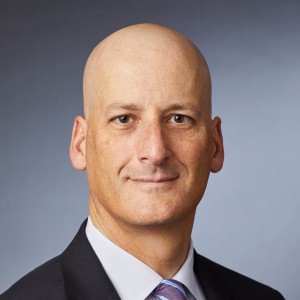Keynote Lectures
Guilherme V. Polanczyk, Brazil
Developmental trajectories to early-onset ADHD
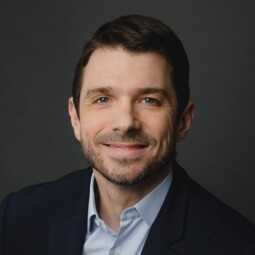
Guilherme V. Polanczyk, Brazil
ADHD is the result of dynamic developmental processes, influenced by genetic and environmental risks that are likely to operate before the condition can be reliably diagnosed. Deviant neurodevelopmental processes are expressed during the first years of life in various ways that have been increasingly recognized in recent years. Sensory processing alterations, sleep and feeding problems, language delays, and hyperactivity are some of the already identified early risk markers. The identification of risk factors and the subsequent developmental cascade that lead to ADHD has profound scientific and clinical implications, as it can shift the focus from diagnosis directed by the presence of functional impairment to early identification, before the negative consequences of ADHD accumulate. Early identification provides the clinical potential to implement interventions at a stage of maximum neuroplasticity, with the promise of attenuating the developmental trajectory of ADHD. However, the move toward a predictive clinical model needs a careful analysis of the ethical challenges involved in identifying infants or toddlers as at-risk individuals.
Hilary Cass, UK
Paediatric gender medicine – are we any closer to consensus?
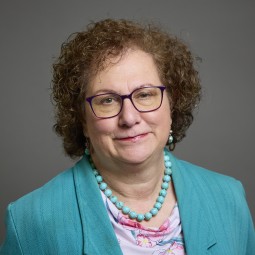
Hilary Cass, UK
Pediatric gender medicine has emerged as a rapidly evolving and highly debated field within child and adolescent healthcare. In several countries, including the United Kingdom, referral patterns, clinical presentations, and service demands have changed substantially over a short period of time, while the underlying evidence base has not developed at the same pace. This has raised important clinical, ethical, and service-delivery questions.
This keynote will reflect on key findings and implications from the recent independent review of NHS services for children and young people with gender-related distress. The Review identified significant limitations in the quality and consistency of the existing evidence, particularly in relation to medical interventions, and highlighted the need for greater clinical caution, improved data collection, and a more robust research infrastructure. It emphasised the importance of comprehensive, multidisciplinary assessment that takes account of mental health, neurodevelopmental profiles, family context, and psychosocial vulnerability.
Against this background, the keynote will outline how the UK is currently responding to these findings, including the development of new service models, strengthened clinical governance, and a renewed focus on outcomes monitoring and research. Attention will be given to the evolving and, at times, variable policy and regulatory landscape, and to the practical challenges of implementing change within a highly sensitive and politicised environment.
This keynote will consider what progress toward “consensus” might realistically entail—focusing on shared standards of evidence, transparency, safety, and child-centred care. Updates on ongoing developments will be presented, alongside reflections on how clinicians and services can navigate uncertainty while maintaining professional integrity and prioritising the long-term wellbeing of children and adolescents.
Olayinka Olusola Omigbodun, Nigeria
Two decades of child and adolescent mental health in Africa after Berlin 2004: Task crafting, task shifting and task sharing
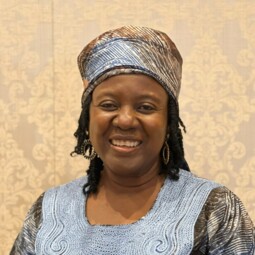
Olayinka Olusola Omigbodun, Nigeria
I first attended an IACAPAP Congress at the 16th Congress in Berlin, Germany, from August 22 to 26, 2004. I was in the pioneer cohort of the Donald J. Cohen Fellowship programme and this opportunity provided support for my travel to the Congress. My journey to Berlin was a very difficult one and I recorded this experience in a previous write-up titled: My Long and Arduous Journey to Berlin (and How it was Worth It). My first contact with IACAPAP not only changed my personal trajectory as a Child and Adolescent Mental Health (CAMH) professional working in sub-Saharan Africa, but it also reshaped the landscape of CAMH in sub-Saharan Africa, bringing multiple interventions such as study groups, partnerships for funding of research, training, service development and advocacy, and crucially, leadership opportunities. This keynote traces two decades of Child and Adolescent Mental Health in sub-Saharan Africa since the Berlin Congress in 2004, describing the impact of IACAPAP on the growth of CAMH in Africa, deciphering what has worked and what could have worked better or differently. I will also highlight the impact of the Centre for CAMH (CCAMH), Ibadan, Nigeria, that was started with partnerships and friendships forged through IACAPAP, in tackling the enormous CAMH needs of Africa. Finally, using IACAPAP as a model, I will share thoughts on how global NGOs and non-state actors can stimulate sustained empowerment, growth, development and equity in resource-constrained settings. I will also share thoughts on how to hasten IACAPAP’s vision of a world in which all children grow up healthy, emotionally as well as physically, and realise their potential to contribute to society, locally and globally.
Jörg M. Fegert, Germany
Beyond the screen: Protecting children in the digital age
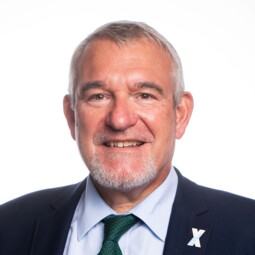
Jörg M. Fegert, Germany
Technology-assisted child sexual abuse (TA-CSA) has become a defining challenge of the digital era. TA-CSA (Chauviré-Geib & Fegert, 2023), includes all forms of child sexual abuse in which digital technologies are used to initiate, escalate, or maintain abusive acts.
Recent representative data from Germany (Chauviré-Geib et al., 2025; Dreßing et al., 2025) reveal alarming exposure rates: 21.1% of respondents encountered pornographic material, 15% experienced unwanted sexualized conversations, and 12.1% received sexualized questions. The highest prevalence was found among 18–29-year-olds (31.6%, approx. 3.6 million). While gender differences were not significant, younger age groups were more affected. Among adults aged 18–59, 12.7% reported experiences of sexual violence—31.7% of which were technology-facilitated. Of those affected, 61.9% experienced digital forms.
These findings highlight TA-CSA as an urgent public health and child protection issue. Effective responses must integrate prevention, legal regulation, digital protection mechanisms and education, adapting interventions to new digital realities. Prevention should recognize online environments as central arenas for child protection and health promotion. Artificial intelligence poses both risks and opportunities—while facilitating abuse, it can also democratize access to prevention and support. Sustainable strategies require clear AI regulation, integrated systems with human oversight, and shared responsibility across sectors.
Supported by Dr. Ursula von der Leyen’s 2025 “The International Charlemagne Prize of Aachen”, one of two projects, which are developed and supervised by Prof. Dr. Jörg M. Fegert, aims to develop a European Guidance Paper and e-learning tools to help professionals detect and address digital risks early and effectively.
Barbara Franke, The Netherlands
Biological mechanisms of ADHD across the lifespan: Underway from basic science to clinical applicability

Barbara Franke, The Netherlands
Among persons with attention-deficit/hyperactivity disorder (ADHD), some thrive, but most have difficult lives, characterized by social and professional problems as well as co-occurrence with other mental and somatic conditions. The current concept of ADHD is highly controversial, with discussions in society about over- and underdiagnosis in different population groups, labeling and overmedicalizing children, and stigma attached to the diagnosis. A lack of objective (bio)markers reduces trust in the diagnosis.
To better understand what ADHD is biologically, molecular research of this condition has been ongoing for over 30 years. The finding that ADHD is a heritable condition formed an important milestone. However, ADHD – like many other psychiatric conditions – is polygenic and multifactorial in its etiology. The identification of genetic risk loci and credible risk genes for ADHD forms the basis for further research into ADHD’s biology. Building on such research, and thanks to newly available technology and Big Data, the pace of discovery in the biological research has increased tremendously over the past few years, as Prof. Franke will discuss in her lecture.
In Prof. Franke’s lab, and often in collaboration with local and (inter)national colleagues, a set of complementary data science and experimental approaches is used to extract biological meaning from the findings of large-scale genetics/genomics studies. This set includes bioinformatics approaches, research in animal and human cellular model systems, as well as neuroimaging genetics analyses. In this presentation, Prof. Franke will take you along a number of examples of studies using such approaches and discuss the resulting insights into the biological mechanisms involved in ADHD across the lifespan and its co-occurrence with other conditions.
Yewande Olufunmilayo Oshodi, Nigeria
Voices from the global South: Tackling stigma, discrimination, and inequity in Child and Adolescent Mental Health

Yewande Olufunmilayo Oshodi, Nigeria
Stigma and discrimination remain among the most persistent barriers to mental health care for children and adolescents worldwide. In many parts of the Global South, these challenges intersect with limited resources, social inequities, and legacies of colonial influence that shape both policy and practice. Within these contexts, powerful examples of innovation and resilience are emerging, which range from community-based interventions and peer-led programs to culturally adapted models of care that center dignity, inclusion, and shared humanity.
This keynote explores how stigma and systemic inequities often shaped by history, culture, and global power structures, continue to shape child and adolescent mental health outcomes. Drawing from experience in Nigeria and across Africa, we can examine how innovative, locally grounded responses are challenging these barriers and redefining what inclusive, collaborative mental health care looks like.
This keynote will draw on experience from clinical service development, training, and advocacy settings to explore how the Global South is generating innovative approaches to child and adolescent mental health.
The keynote highlights how addressing stigma requires not only local engagement but also a global shift; that values equity, listens to diverse voices, and dismantles structures of discrimination within mental health systems and research collaborations and removes subtle yet global traces of discrimination. By rethinking how we frame, fund, and deliver mental health care, this keynote will invite the participants to envision a more equitable future for young people one where global partnerships truly empower rather than prescribe, and where every child, regardless of geography or circumstance, can access compassionate and culturally grounded care.
Argyris Stringaris, UK
Social surprises: Anatomy of a research programme into the mechanisms of disease and treatment
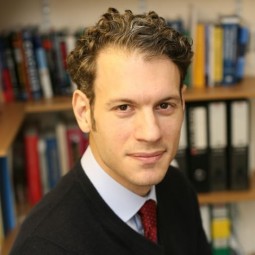
Argyris Stringaris, UK
A key question in contemporary psychopathology research concerns mechanisms of disease: what is the causal chain of events that gives rise to symptoms and signs of mental disorders. Typical strategies involve chasing for the first causes of illness, such as its genetic (e.g. constellation of genetic polymorphisms) or social origins (e.g. income inequality). These approaches can be fruitful, but can also be distal to the clinical phenomena (early in the causal chain) and/or be difficult to modify and thus to apply clinically.
Here I will present an alternative strategy which starts “from the end”, i.e. tries to exploit observations about which treatments are efficacious and asks how and why they may be so. It thus attempts to isolate potential mechanisms of effect with two goals: first, enhancing existing treatments by maximising active ingredients that target identified mechanisms; b) second, providing insights into the disease process and its potential modifiable components for new treatment development.
In my talk, I will: a) examine critically the epistemological assumptions of this programme vs alternatives and b) present the structure and empirical findings of an ongoing programme that tries to exploit social surprises for the better understanding and treatment of anxiety and depression in youth.
Paul L. Plener, Austria
Nonsuicidal Self-Injury: Understanding a transdiagnostic phenomenon to inform treatment
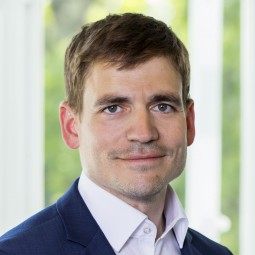
Paul L. Plener, Austria
Nonsuicidal Self-Injury (NSSI) has been recognized as a prevalent phenomenon that occurs in the context of various mental health disorders and peaks during adolescence. Although emotion regulation has been described as a primary motive for NSSI in research, interpersonal dynamics and social motivations have also been discussed. Recent research has additionally focused on the social contagion of NSSI, a theme that is particularly relevant with regard to social media coverage of the behavior.
Different lines of research have informed our understanding of the underlying mechanisms and effective treatment strategies. With regard to neurobiological mechanisms, alterations in the autonomic nervous system, brain activation patterns, the HPA axis, pain processing, and the endogenous opioid system have been identified. In terms of psychotherapeutic interventions, Dialectical Behavior Therapy for Adolescents (DBT-A) as well as Cognitive Behavioral Therapy (CBT) have been shown to be effective in reducing the frequency of NSSI.
In recent years, online interventions and mobile applications have received increasing attention, and initial studies have shown promising results. This lecture aims to provide a state-of-the-art overview, spanning from neurobiological mechanisms to treatment approaches.
Ayesha Mian, Pakistan
Strengthening systems of care: A framework for a global child and adolescent mental health curriculum

Ayesha Mian, Pakistan
Across the world, an estimated one in seven adolescents experience mental disorders, yet in low- and middle-income countries the treatment gap may reach 76 to 85 percent, meaning most who need help never receive it. The mental health of children and adolescents is shaped by cultural values, social determinants, and profound inequities in access to care. The current training models do not adequately prepare a workforce to address these inequities or the contexts that perpetuate vulnerability. A global child and adolescent mental health curriculum would build upon the foundation of core clinical competencies to prioritize equity, global burden of disease, and the realities of environments in which children grow, learn, and seek help.
This talk presents the need and framework of such training grounded in essential competencies: developmental and cultural formulation; social determinants and epidemiology; resource mapping and systems strengthening; humanitarian crises; ethics and human rights; equitable care; prevention and community-based support; and cross-sector collaboration. The goal is to build cultural humility, advocacy, and innovation in low-resource settings.
A global curriculum addresses three persistent challenges: disparities in workforce capacity, wide variation in what is taught and to whom, and the absence of shared standards defining minimum competencies. By aligning training with real-world burden and contextual realities, it aims to strengthen systems of care and close persistent gaps in access and quality.
Ultimately, this framework reflects a simple commitment: that every child, everywhere, deserves informed, competent, and compassionate mental health care that upholds dignity, equity, and the possibility of flourishing.
Tycho Dekkers, The Netherlands
ADHD - it's not just the child: On the need to expand our narrative

Tycho Dekkers, The Netherlands
Over the last decades, the predominant focus of research into ADHD has been neurobiological. Although this has delivered us many insights, the narrative might have become too one-sided. A risk is that this emphasis on biological factors has created a deterministic, individualized, and decontextualized view on ADHD. This means that we focus our solutions too much on the individual level, and that the broader context of the child’s problems runs the risk of being neglected. The first part of this lecture will focus on the risks of such decontextualization, such as prognostic pessimism, stigma and overreliance on medication in treatment planning. The second part is a plea for more context in our ADHD narrative, by presenting work from the PAINT consortium on context-focused interventions for families of children with ADHD.
Andrés S. Martin, USA & Cecil Prins-Aardema, The Netherlands
The psychiatrist as psychiatric patient: Family lessons on impact, recovery, and resilience
Cecil Prins-Aardema, The Netherlands
& Andrés S. Martin, USA
Individuals with mental illnesses and those of us who care for them are not that different from one another. But in being with our patients, how many of us share our fallibility, our vulnerability, our imperfection: how many of us share our own living experience being on “their” side of the aisle? More to the point: how many of us professionals share with one another? Not nearly enough. We have been too caught up in a maladaptive search for perfectionism and infallibility. Sharing such personal information is understandably a bridge too far for many. When it comes to mental health, little of this state of affairs is due to the facile explanation of breaches in privacy. It is simpler than. And more painful. It is because of stigma.
This presentation builds on an earlier keynote delivered at ESCAP in Strasbourg, 2025. This new presentation will expand that earlier content by incorporating the complementary perspectives of adolescents and young adults, highlighting intergenerational and familial impact on the road to recovery during adolescence and young adulthood.
Laelia Benoit, France
Climate Change and Children's Mental Health

Laelia Benoit, France
Climate change is increasingly recognized not only as an environmental and economic crisis, but also as a profound public health challenge with specific consequences for mental health. Children and adolescents are uniquely vulnerable, both because of their developmental stage and their limited control over the conditions shaping their lives. Climate-related events such as extreme weather, forced displacement, food insecurity, and community disruption have been shown to heighten risks for anxiety, depression, post-traumatic stress, and school absenteeism. Beyond acute disasters, the chronic awareness of a changing and uncertain future, sometimes described as “eco-anxiety”, can significantly affect young people’s sense of safety, agency, and hope.
Research highlights that the burden of these impacts is unequally distributed. Children from marginalized communities, including those already facing social and economic disadvantage, are disproportionately exposed to climate hazards and often have fewer resources for recovery. At the same time, young people are not only victims but also active agents of adaptation and change. Many are leading climate movements, developing innovative communication strategies, and calling for systemic action.
For child mental health professionals, climate change presents both an urgent challenge and an opportunity. It requires integrating climate-related stressors into clinical care, research, and policy advocacy, while fostering resilience and collective engagement. This presentation will review current evidence on the mental health impacts of climate change in children and adolescents, highlight inequities, and discuss approaches for clinicians, educators, and policymakers to support the next generation in the face of a warming world.
Sven Bölte, Sweden
Psychiatry 2.0 in autism and ADHD – from categorical overfocus to personalized functioning implementing WHO’s ICF system
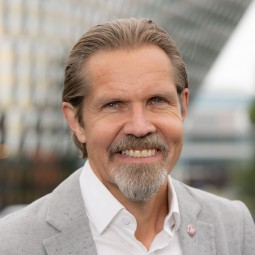
Sven Bölte, Sweden
Although there is consensus today that autism and ADHD are heterogeneous and dimensional phenomena that require individual understanding and tailored support across society, much thinking and action is still predominantly based on a medical model according to ICD-11 and DSM-5. Strictly applying a nosological approach to neurodevelopmental conditions and subclinical traits levels is inappropriate in a modern and fast changing word, valuing diversity and complexity, hampers and delays effective actions, generates inadequate treatment expectancies, overburdens mental health services and is a potential driver of increasing diagnoses rates of autism and ADHD. Categorical diagnoses alone convey little information for planning individualised intervention, they are not solution-oriented and lack information about resources and environmental impact. The WHO's International Classification of Functioning (ICF) allows a more holistic assessment of a person's strengths and challenges, activities, and participation, facilitating and hindering environmental factors and personal factors across clinical, educational, social and everyday spaces. This lecture will introduce to the ICF model, its philosophy, advantages, and application in practice. There will be a particular focus on the adaptation of the ICF for efficient use in autism and ADHD, and the research it builds on.
Bruno Falissard, France
Is there a child and adolescent psychiatric colonialism?
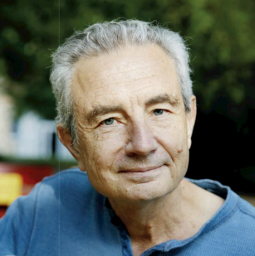
Bruno Falissard, France
This talk will explore whether child and adolescent psychiatry can be considered a form of colonialism, drawing on historical, cultural, and epistemological perspectives. Classical colonial psychiatry often served to pathologize cultural difference, as described by Frantz Fanon, with psychiatric categories used to normalize colonized populations and justify domination. Contemporary practices raise similar concerns: diagnostic criteria, randomized trials, and treatment guidelines developed in Western contexts are often imposed globally, despite cultural differences in child development, parenting norms, and understandings of mental health. Examples include the pathologization of impulsivity in ADHD, culturally divergent parenting practices, and the risks of exporting child protection frameworks without cultural sensitivity. Postcolonial trauma also continues to affect second-generation migrant children.
The global mental health movement and initiatives like WHO’s mhGAP illustrate both progress and pitfalls: while evidence-based treatments for conditions such as psychosis, PTSD, and panic disorder show cross-cultural validity, imposing standardized “packages” risks reinforcing epistemological dominance. More subtly, psychiatry inherits from Western natural science a universalist epistemology that privileges objectivity, biological reductionism, and statistical norms, marginalizing therapeutic alliance, spirituality, and culturally specific forms of selfhood.
Thus, psychiatric colonialism can be understood as both visible (through global institutions and practices) and invisible (through scientific and epistemological frameworks). At the same time, certain medical and psychiatric interventions are genuinely universal in their effectiveness. Clinicians must therefore navigate a balance between respecting cultural diversity and acknowledging universals, remaining critically aware of potential colonial dynamics while providing care that is both evidence-based and contextually appropriate.
Further confirmed keynote speakers

Dixon Chibanda, Zimbabwe

Kapil Sayal, UK

Chiara Servili, Switzerland

Philip Shaw, UK

Tobias Banaschewski, Germany
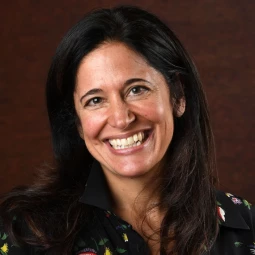
Ilina Singh, UK

